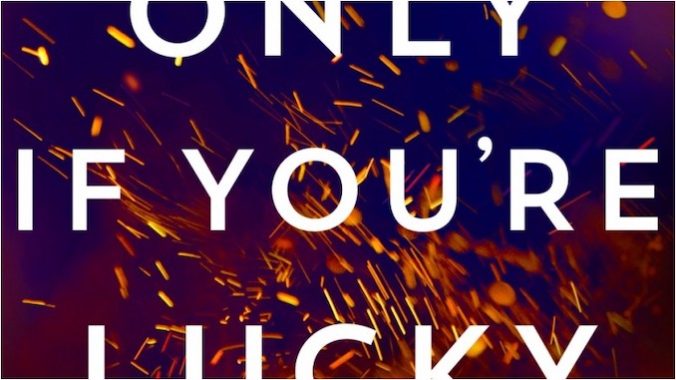Only If You’re Lucky Author Stacy Willingham Talks Female Friendship, Unreliable Narrators, and More

We’re a little over a month into 2024, but one of the year’s best thrillers is already on shelves. Only If You’re Lucky is the latest novel from Stacy Willingham, author of buzzy titles A Flick in the Dark and All the Dangerous Things, and it’s a twisty, propulsive story of female friendship at both its warmest and most damaging.
The story follows Margot, who has just finished a lonely freshman year at South Carolina’s Rutledge College. Still reeling from the death of her best friend Eliza the summer before, she’s yet to find a place for herself on campus. But when she catches the attention of Lucy Sharpe, a popular and charismatic girl from her dorm floor, she finds herself invited to live with her and her friends Sloane and Nicole in a house off campus. But as the summer’s booze-soaked partying with the fraternity next door continues, she finds herself drawn into a web of secrets and mind games. And when one of the boys next door—who happens to be Eliza’s old boyfriend—turns up dead with a now-missing Lucy’s blood on his clothes, the investigation into her disappearances reveals shocking truths.
It’s difficult to talk about Only If You’re Lucky without spoiling its most entertaining and twisty reveals, but sufficing to say the story is both a propulsive thriller and a thoughtful exploration of the complex, messy bonds between young women, that can change lives forever.
We got the chance to chat with Willingham herself about Only If You’re Lucky’s twisty narrative, the fraught complexities of female friendship, and lots more.

Paste Magazine: Tell us about Only If You’re Lucky! What inspired its story?
Stacy Willingham: Only If You’re Lucky tells the story of a timid college freshman named Margot who is unexpectedly invited to live with three other girls in a house off-campus the summer before her sophomore year. The ringleader of those roommates, a girl named Lucy, is eerily magnetic, the kind of person who makes it impossible to say no, and who not only successfully pulls Margot out of her shell, but starts to warm her up to some seriously destructive behaviors.A few months into the living situation, however, one of the fraternity boys who lives next door is murdered and Lucy goes missing without a trace, leaving Margot in the investigative wake as she tries to get to the bottom of why she was invited into their orbit in the first place.
The inspiration for this book actually came from the setting—specifically, the house I lived in in college. It was a quirky old place with a lot of eccentric details, and it was also owned by a fraternity, which means that the boys living next door were our landlords. Another piece of inspiration came from reading about the cult at Sarah Lawrence College. After learning about that case, I was really interested in how a bunch of college-aged kids living together in a house off-campus could turn so dark so quickly; I also found it both fascinating and terrifying that if any group of college students happened to fall under the spell of the wrong person like that, horrible things could happen without anybody really knowing about it.
Paste: Margot is technically the main character (sort of). How would you describe the journey she’s on over the course of this book?
Willingham: I’m not sure I would call Margot’s journey a classic coming-of-age story, but her arc is all about her process of discovering who she is and what she’s capable of.
In the beginning of the book, she is described as “vanilla, malleable, a blank slate.” The kind of person who other people can easily shape. Throughout the novel, Margot does get shaped, but probably not in the ways she, or the reader, might expect.
-

-

-

-

-

-

-

-

-

-

-

-

-

-

-

-

-

-

-

-

-

-

-

-

-

-

-

-

-

-

-

-

-

-

-

-

-

-

-

-








































